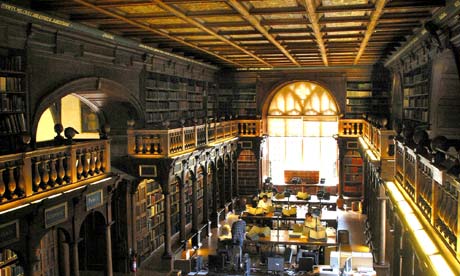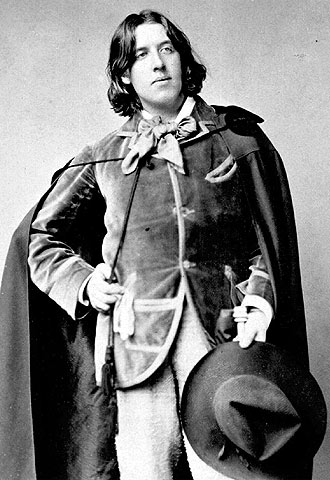More correctly speaking, it's time for the Vereenigde Oost-Indische Compagnie, or VOC, or the Dutch East India Company, in English.
What am I in love with, exactly? This wonderful symbol right here:

As you can see, I might be a trifle obsessed. It's just a symbol! But that symbol, dear friends, is a remnant of a long-lost company (or compagnie) that was the first megacorporation in the world, in addition to being the most powerful and richest compagnie in history.
Let's delve into history, shall we?
The year is 1602. Islands and landmasses are being discovered almost daily. It's the Age of Exploration (which I personally hate, for all the injustices made) and of course there are only two ways to explore: on foot, and by sea. Foot's out of the question, because of the islands.
As you can see, ports are extremely valuable and useful in cases like this. Roanoke, which is creepy but interesting, was a sort of port, near the ocean. In fact, it's why Roanoke was so close to the sea. It's close by and easy to transport goods and living services.
There was Jamestown in Virginia. There was New York (Amsterdam) over in New York, there was Port Royal in Jamaica, etc. Now let's look a bit at the macrocosm, the larger picture.
Portugal was busy and creating an interoceanic empire and starting the slave trade. The Spanish were busy conquering South American, looking for gold. The French were discovering bays and looking to Canada. The English were with said Roanoke and Jamestown. So where were the Dutch?
[Historical Side Note----read at your own risk----]
Wait, wait, wait. What about Ireland? Germany? Italy? Greece? Surely these countries were also colonizing and taking over powerful tracts of land! Well...not exactly. Germany was still stuck in the Holy Roman Empire, later to be part of Prussia, and some of Austria-Hungary, and Sudetenland...anyway, it was still in the 100 Years' War fighting itself (which was really 116, but no one back then could count higher than 100 till Isaac Newton came along.)
By the way, the Holy Roman Empire was neither Holy, Roman, nor an Empire. It wasn't holy, at least in the Catholic Church's eyes. C'mon, Luther came from there! It wasn't Roman, it was modern Germany and Poland and the Czech republic. And empire...we just said it was busy fighting itself, so yeah. But I digress.
Italy was in the same predicament, but it was the Papal States and all those cities (Firenze, Venezia, Roma, Milano, etc) and was busy being artistic in the Renaissance. Despite Columbus coming from Genoa, Italy never really was powerful in the Age of Exploration, being powerful instead in the 1800s European scramble for Africa.
[Historical Side Note Over]
So the Dutch decided that ports were the way to go, and founded lots of ports or took over a lot. They discovered new islands and places, and left their mark on geography and history. But was it really the Dutch? I should say the VOC was more in charge of this than anything.
But what the hell is the VOC? I can hear you asking, along with Why do I need to care about this?
I'm getting to the first question. I can't really answer the second, because everyone has their own reasons for learning and teaching stuff.
The VOC, as said above, the Dutch East India Company, was this chartered company. What's a chartered company? Well, in these turbulent times of exploration, the countries and kingdoms wanted power and wealth, but they couldn't go wasting all their money, because as we saw two weeks ago, France ended up in revolution. So stockholders and merchants would strike deals with the King and Queen, for some funding.
So these Dutch merchants asked for money from the King and Queen of the Netherlands, under the condition that they claim everything in the name of the Netherlands. And so this compagnie worked well for about 150 years. Then it became corrupt around 1740, bankrupt by 1790, defunct by 1798, and completely gone by 1800.
But in the first 125 or so years it was powerful. The VOC established trade ports, named places like New Amsterdam, New Holland (Australia), New Zealand (after Zeeland, a Dutch province), and much more. They controlled the Spice Trade, making the Dutch very rich. They controlled Batavia (aka Jakarta, Indonesia) and that's where outsourcing began. But I digress.
Finally, they became the richest country EVER (worth more than 10 trillion) by a little crazy thing called Tulipmanie. Without saying (or criticizing) too much, in 1637 tulips made their way to Holland. Yes, they were imported, from Turkey, actually. The people and merchants loved these wonderful flowers that they decided to actually BUY AND SELL in them. And they became worth so much, inflation was extreme, people quickly made fortunes and became paupers within hours over a single tulip bud, and more. Don't try to tell me about living life on the edge.
Then this frivolity ended in less than a year, with everyone all crazed and poor. The VOC, of course, had done this too, that's why they were so rich. A single tulip bud could be worth about 220,000 US dollars in today's money. But then the VOC recovered and went on to greatness. Another thing on their list of achievements.
Oh, and don't forget - they also made your World History class harder by leaving copious notes in your textbook, and had an epic logo to boot. Have fun!
-Rob
(I got most of my information from this wonderful video by CGPGrey, who is a brilliant Youtuber. Credit goes to him for about half the info here, if not more or less. http://www.youtube.com/watch?v=eE_IUPInEuc )






